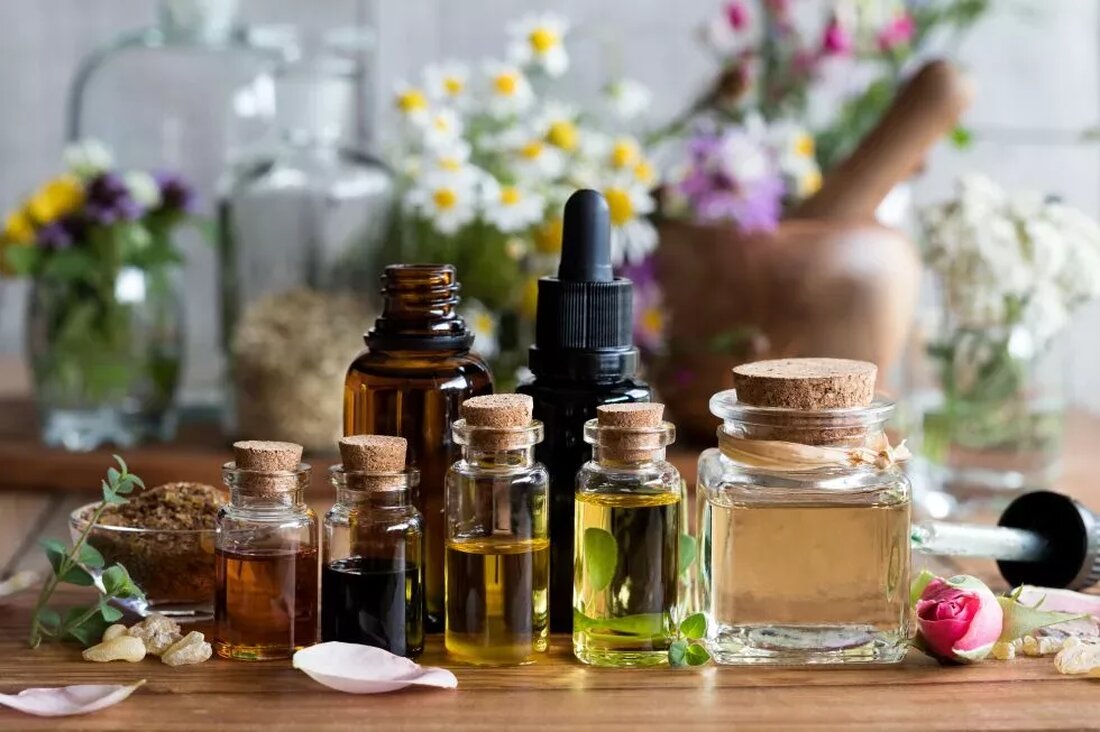Essential oils to improve learning
This back-to-school season, you shouldn't just stock up on books and other supplies. Add essential oils to enhance your learning experience. In addition to being great for boosting memory, aromatherapy can help improve focus, perception, alertness, and outlook. What is Aromatherapy? When we talk about aromatherapy, we are talking about the therapeutic use of natural oils extracted from flowers, plants, trees, resins and other botanical elements in nature. Each oil known as essential oils has unique healing properties that can be achieved either by inhaling the scent using a diffuser...

Essential oils to improve learning
This back-to-school season, you shouldn't just stock up on books and other supplies. Add essential oils to enhance your learning experience. In addition to being great for boosting memory, aromatherapy can help improve focus, perception, alertness, and outlook.
What is Aromatherapy?
When we talk about aromatherapy, we are talking about the therapeutic use of natural oils extracted from flowers, plants, trees, resins and other botanical elements in nature.
Each oil known as essential oils has unique healing properties that can be obtained either by inhaling the scent with a diffuser or room spray or through absorption when diluted and applied topically to the skin. There are many essential oils that can help improve learning and retention.
Essential oils for learning
Eucalyptus (Eucalyptus radiata)
Eucalyptus, the classic scent associated with ointments to treat colds and flu, is also used along with a diffuser to stimulate the brain and improve energy. Both can help improve learning.
Lavender (Lavandula angustifolia)
Lavender essential oil appears to have a calming effect that can help ease the anxiety that often accompanies tests and exams. In preclinical research, the essential oil shows promise for restoring healthy levels of serotonin in the brain, which may explain its ability to improve mood and reduce anxiety and depression.
Lemon (Citrus Limon)
Animal studies appear to support the traditional use of lemon essential oil to improve mood and relieve depression and anxiety. This makes it an excellent choice for those who struggle with the emotional aspects of learning.
Orange (Citrus sinensis)
Researchers have found that inhaling orange essential oil reduced anxiety, calmness and mood in study participants. These beneficial effects could also apply to a learning environment.
Peppermint (Mentha piperita)
Peppermint is commonly used in aromatherapy to improve attention and concentration and to increase mood and energy. All of these can be helpful when studying or studying. In a 2008 study published in the International Journal of Neuroscience, researchers found that smelling peppermint essential oil increased attention and memory.
Rose (Rosa damascena)
Research in the medical journal Neuroscience found that smelling the scent of roses while studying and sleeping increases memory and learning ability. Another study published in the journal Complementary Therapies in Medicine found that inhaling the scent of rose (or orange) essential oil induces relaxation, which may be helpful in dealing with the stress associated with studying.
Rosemary (Rosmarinus officinalis)
Rosemary's long-standing reputation for boosting memory likely stems from its ability to increase blood flow to the brain. In animal studies, rosemary was found to slow the breakdown of the compound acetylcholine, which is involved in memory formation. Arguably the best essential oil for memory and learning, rosemary has been found by other research published in the Alexandria Journal of Medicine to improve focus, memory and memorization in children.
How to use essential oils
There are many great ways to incorporate essential oils into your life to promote learning.
Be sure to dilute essential oils in carrier oils such as coconut, almond, grapeseed, or jojoba, or in a lotion before applying directly to the skin. The rule of thumb for mixing essential oils to apply to skin is 3 percent dilution, or 20 drops of essential oil per 2 tablespoons (30 ml) of carrier oil. Apply diluted oils to your forehead, back of your skull, nose, or palms.
Aromatic
Inhaling essential oils can be done using an essential oil diffuser, which causes the oils to evaporate into the air. Diffuse 3 to 5 drops of the oils of your choice to encourage the scent to enter your nose and access your olfactory system.
Safety Guidelines for Using Essential Oils
- Vermeiden Sie die Verwendung von ätherischen Ölen in Ohren, Augen oder Nase.
- Nicht intern ohne Anleitung eines qualifizierten Fachmanns verwenden.
- Verdünnen Sie ätherische Öle immer vor der Verwendung.
- Führen Sie einen 48-Stunden-Patch-Test durch, bevor Sie verdünnte Öle auf Ihre Haut auftragen.
- Stellen Sie die Anwendung ein, wenn Sie allergisch reagieren.
- Verwenden Sie nur Öle, die während der Schwangerschaft und Stillzeit geeignet sind.
- Mit Vorsicht verwenden.
Essential Oil Buying Tips
Choose organic essential oils whenever possible.
Look for a reputable manufacturer that practices fair trade, harvests raw materials using environmentally responsible approaches, avoids the use of harsh extraction solvents or other synthetic ingredients, and uses therapeutic species.
Avoid products labeled as “fragrance oils,” “perfume oils,” or “natural identical” oils as they are typically made from synthetic chemicals that provide no therapeutic value.

 Suche
Suche
 Mein Konto
Mein Konto
